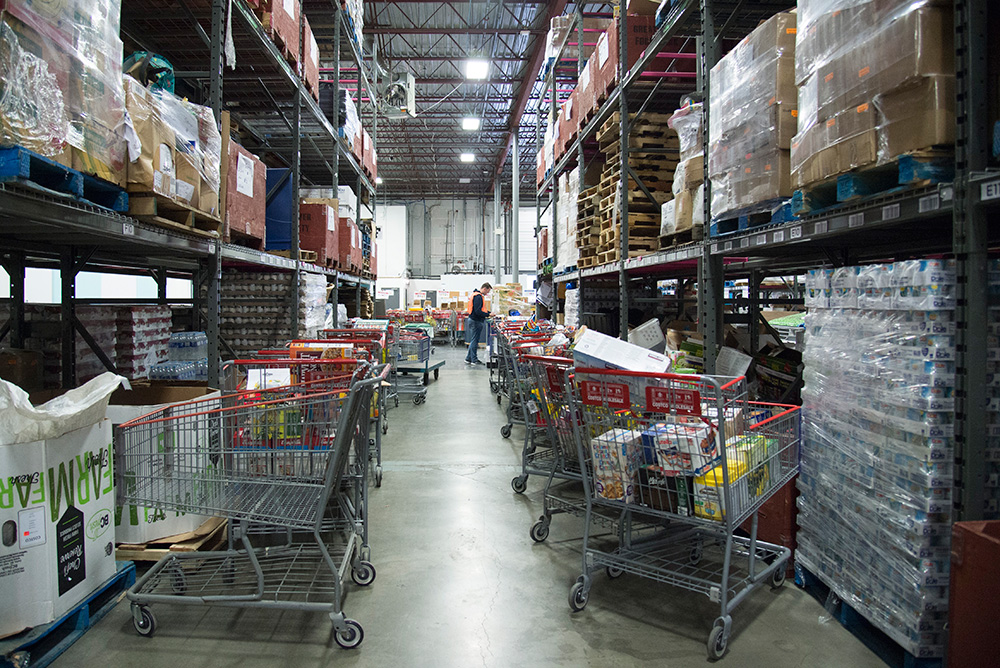An open letter to Nicholas Simons, B.C.’s minister of social development and poverty reduction.
Many congratulations on your appointment in these fragile, unnerving pandemic times. As the NDP election platform and your mandate letter from the premier make clear, government policy on food banks is now your responsibility.
That means you have the opportunity — and responsibility — to reverse the province’s shocking embrace of U.S.-style food banks, which should be an embarrassment for Canada’s party of human rights and economic and social justice.
Especially as the dependence on food banks can only undermine B.C.’s legislated poverty reduction strategy.
You are rightly expected to build on the 2019 TogetherBC poverty reduction plan and the coming recommendations of the B.C. expert panel on basic income in determining the best way forward. Living wages and income assistance benefits, secure jobs and skills training are central to poverty reduction, advancing social inclusion and ending food insecurity.
Your ministry and Agriculture, Food and Fisheries are now jointly tasked with supporting food banks, discounted food markets and surplus food distribution.
Yet it’s troubling that the B.C. Provincial Health Services Authority is not at the poverty reduction table. And it’s notable that Canada’s public health experts have concluded that “problems of household food insecurity cannot be managed by community responses.”
The BC Centre for Disease Control also says household food insecurity can’t be fixed through food-based initiatives or charitable efforts.
This absence of the Provincial Health Services Authority is all the more perplexing given the evidence-based findings of the 2017-18 StatsCan Community Health Survey, which concluded that food insecurity is an income problem that requires income-based solutions.
Ironically, a point not missed by Ottawa and Victoria when COVID-19 struck. Billions of dollars flowed in the Canada Emergency Response Benefit, wage subsidies and related B.C. benefits to pay for food and rent.
Equally astounding is the silence of the mandate letters for Health Minister Adrian Dix and the Provincial Health Services Authority on the growing crisis of food insecurity, which affected more than half a million British Columbians even before the pandemic and disproportionately impacted Indigenous and Black peoples and ethnic minorities.
Most confusing is the government’s decision to provide public funding for food banks. It makes a mockery of the data that shows food insecurity is an income problem that must be dealt with through poverty reduction and social inclusion.
In fact, the government’s support for food banks will further entrench surplus food distribution as a response and handmaiden to precarious low wages and sub-poverty levels of social security benefits. Hardly social justice at work.
If poverty reduction and ending food insecurity are the goals, it’s time for public policy to end the need for food banks rather than promoting them.
Food security is about ensuring the production, supply and availability of food in normal times and national emergencies.
It should not be about food banks channelling surplus food to feed hungry people. They are neoliberal Band-Aids, symptoms of broken social safety nets and ineffective and stigmatizing responses to ever increasing rates of household food insecurity in B.C., and across Canada, now at their highest levels since monitoring began in 2005.
Nor are food banks a green solution to the massive food waste problem, itself a symptom of dysfunctional industrial food systems.
Food insecurity is about lack of access to food due to financial constraints that are a result of deepening poverty and inequality and failed income distribution, public health and social policies. That’s why the Provincial Health Services Authority must be at the poverty reduction table.
As an income problem, food insecurity is a key metric to include in the measurable outcomes for B.C.’s poverty reduction strategy. The cost of food required for a healthy life must be a factor in setting rates for living wages, income assistance and any planned basic income program.
The policy conversation with Provincial Health Services Authority must also address its egregious decision to opt out of the 2019-2020 Canadian Community Health Survey on food insecurity, making B.C. the only province not to participate.
This loss of income data will undermine B.C.’s post pandemic evidence-based food insecurity and poverty reduction planning.
Though lacking specific mandates regarding food insecurity, the housing and Indigenous relations and reconciliation ministries should be key actors at the poverty reduction table.
The government should be acting now for post-pandemic times and ensuring that food insecurity is a key element to be addressed in any poverty reduction plan.
After all, food is a basic human need. ![]()
Read more: Rights + Justice, Food
















Tyee Commenting Guidelines
Comments that violate guidelines risk being deleted, and violations may result in a temporary or permanent user ban. Maintain the spirit of good conversation to stay in the discussion.
*Please note The Tyee is not a forum for spreading misinformation about COVID-19, denying its existence or minimizing its risk to public health.
Do:
Do not: